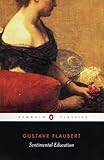
1.
In Paolo Sorrentino’s film The Great Beauty, a louche writer named Jep Gambardella, spends much of his time strolling through the cobble-stone streets of Rome and soaking up impressions and experience, that will figure, we assume, in a long-delayed follow-up to his first acclaimed novel. He reflects on the ineffable qualities that mark good writing.
 “As kids, my friends always gave the same answer: ‘Pussy’,” Jep recalls. “Whereas I answered ‘The smell of old people’s houses.’ The question was ‘What do you really like the most in life?’
“As kids, my friends always gave the same answer: ‘Pussy’,” Jep recalls. “Whereas I answered ‘The smell of old people’s houses.’ The question was ‘What do you really like the most in life?’
“I was destined for sensibility. I was destined to become a writer. I was destined to become Jep Gambardella.”
At another point, while responding to the flattery of a beautiful, young female admirer, who quotes from his book, Jep says the sentiment he was expressing had been better written by the Italian prose master Alberto Moravia.
Born in 1907, Alberto Moravia achieved at 21 critical and commercial success with his first novel, The Time of Indifference, a cause célèbre eschewing middle-class mores. Before his death in 1990, he would publish over 40 novels, including The Conformist (1951), the adaptation of which in 1970 by Bernardo Bertolucci has the unusual distinction of being both a classic of post-war Italian cinema and of early-1970s zeitgeist.

 In his recollections to the Paris Review, after Mussolini came to power, he struggled to get his books published (though Mussolini himself approved the 1940 publication of The Dream of the Lazy) and eventually fled for refuge to the Apennine mountains in 1943. He spent the war years trying to get his scandalous novels past Fascist censors:
In his recollections to the Paris Review, after Mussolini came to power, he struggled to get his books published (though Mussolini himself approved the 1940 publication of The Dream of the Lazy) and eventually fled for refuge to the Apennine mountains in 1943. He spent the war years trying to get his scandalous novels past Fascist censors:
I sent Agostino to them two months before the fall of Fascism, two months before the end. While all about them everything was toppling, falling to ruin, the Ministry of Popular Culture was doing business as usual. Approval looked not to be forthcoming; so one day I went up there, to Via Veneto — you know the place; they’re still there, incidentally; I know them all — to see what the trouble was. They told me that they were afraid that they wouldn’t be able to give approval to the book. My dossier was lying open on the desk, and when the secretary left the room for a moment I glanced at it. There was a letter from the Brazilian cultural attaché in it, some poet, informing the Minister that in Brazil I was considered a subversive. In Brazil of all places! But that letter, that alone, was enough to prevent the book’s publication.
Moravia himself spent most of the second half of the 20th century strolling along the Via dell’Oca (which means “Street of the Goose”). Anna Maria de Dominicis and Ben Johnson, in the introduction to his Paris Review interview, describe the street as “houses of working-class people: a line of narrow doorways with dark, dank little stairs, cramped windows, a string of tiny shops; the smells of candied fruit, repair shops, wines of the Castelli, engine exhaust” on one side and on the other side “the serene imperiousness of unchipped cornices and balconies overspilling with potted vines, tended creepers: homes of the well-to-do.” His fiction would explore both sides of Italy.
 In an introduction to Moravia’s Boredom, William Weaver says, “Moravia was a great friend to walk with: a born Roman, he knew every brick of the city; even the most drab apartment block or the scruffiest little church could set a sparkling train of associations and memories. But, on encountering him, I would first, automatically, ask him how he was.
In an introduction to Moravia’s Boredom, William Weaver says, “Moravia was a great friend to walk with: a born Roman, he knew every brick of the city; even the most drab apartment block or the scruffiest little church could set a sparkling train of associations and memories. But, on encountering him, I would first, automatically, ask him how he was.
“’Mi annoio,’ he would usually reply, in his clipped telegraphic way.
“’I’m bored.’”
2.
NYRB Classics has recently republished Moravia’s early novella Agostino, in a fine translation by Michael F. Moore. Agostino is a young boy who has an unusually close attachment to his widowed mother, and the novel takes place during their extended stay at a beach resort. His sensitivity and jealousy drive them apart in the first chapters of the book, a closely reworked Swann’s Way:
Agostino’s mother was a big and beautiful woman still in her prime, and Agostino was filled with pride every time he got in the boat with her for one of their morning rides.
The novel, though, soon plunges from Proust into the hard-knock fringes of the beach resort. Driven away by his mother’s interest in a “tanned, dark-haired” young man, Agostino falls in with a group of working-class boys who are inarticulate, violent, inscrutable. He is drawn to them, as a kind of foil to his predictable upper-middle-class universe:
For a moment Agostino felt happy as he swam while the cold powerful stream tugged at his legs, and he forgot every hurt and every wrong. The boys were swimming in all directions, their heads and arms breaking through the smooth green surface. Their voices echoed clearly in the still air. Through the glassy transparency of the water, their bodies looked like white offshoots of plants that, rising to the surface from the darkness below, moved whichever way the current took them.
Eventually, the privileged Agostino whose home has 20 bedrooms (an unimaginable number for the other boys) begins to beg for change. He encounters a father and son, and the father unadvisedly takes the opportunity to teach his son about the have’s and have-not’s.
“And how old are you?” the man inquired.
“Thirteen,” said Agostino.
“You see,” said the man to his son, “this boy is almost the same age as you and he’s already working.” Then to Agostino, “Do you go to school?”
“I wish…but how can I?” replied Agostino, taking on the deceitful tone he had often heard the boys in the gang adopt to address similar questions. “I gotta make a living, mister.”
“You see,” the father turned to his son again, “this boy can’t go to school because he has to work, and you have the nerve to complain because you have to study?”
 Moravia maintained an interest in intellectuals who rationalize their own impulsive behaviors and others’. In stark contrast to Agostino, his later novel, Contempt, rereleased a decade ago by NYRB Classics, features a first-person narrator, a screenwriter whose disgust for movie-writing is matched only by his wife’s inexplicable contempt for him. Throughout, the narrator interrogates his wife, and by extension the mystery of attraction itself:
Moravia maintained an interest in intellectuals who rationalize their own impulsive behaviors and others’. In stark contrast to Agostino, his later novel, Contempt, rereleased a decade ago by NYRB Classics, features a first-person narrator, a screenwriter whose disgust for movie-writing is matched only by his wife’s inexplicable contempt for him. Throughout, the narrator interrogates his wife, and by extension the mystery of attraction itself:
Suddenly, the suspicion that she no longer loved me sprang into my mind again, in an abrupt, haunting sort of way, as a feeling of the impossibility of contact and communion between my body and hers…And I, like a person who suddenly realizes he is hanging over an abyss, felt a kind of painful nausea at the thought that our intimacy had turned for no reason at all, into estrangement, absence, separation.
Since so many of his themes touch on the unconscious and taboo sexuality, it might be surprising how skeptical his novels are to psychoanalytic techniques. Throughout Contempt, Moravia satirizes a character who has embraced a very schematic version of Freudianism.
Moravia suggests that ratiocination is a poor substitute for taste. One of his great themes is how sensibility is wrecked by negotiations with other people, other classes, other individuals, and thereby reinvigorated. As the screenwriter-narrator of Contempt says of his wife when she tells him she despises him, “It was the tone of the virgin word that springs directly from the thing itself and pronounced by someone who had perhaps never spoken that word before, and who, urged on by necessity, had fished it up from the ancestral depths of the language, without searching for it, almost involuntarily.”
Both Contempt and Agostino have an almost Neoclassical form, unlike, say, The Leopard. Lampedusa and Moravia point toward two very different directions for Italian fiction, though Contempt, a bracingly austere book that harkens back to naturalism, was published in 1954, and Lampedusa’s inventive, comic experiment was published in 1958.
Though his work deeply engaged with early-20th-century social and intellectual concerns, he claimed his fiction was informed most by the big “C” Canon. In his conversation with the Paris Review, he comes across as alternately fusty and cantankerous in his observations on the Moderns. He rejects O’Neill and Shaw as major dramatists because they “resorted to everyday language and, in consequence, by my definition failed to create true drama.”
 If the first chapter takes off from Proust, the last movement of Agostino is a poignant revision of the ending of Sentimental Education. In Flaubert’s novel, Frédéric and Deslauriers, after several intervening years of disillusionment and disappointment, reminisce about a youthful visit to a brothel. During the visit, Frédéric becomes embarrassed and flees into the street, and his friend follows him. They are both seen coming out, and it causes a “local scandal which was still remembered three years later.” The novel ends with the two failed romantics remarking on the story:
If the first chapter takes off from Proust, the last movement of Agostino is a poignant revision of the ending of Sentimental Education. In Flaubert’s novel, Frédéric and Deslauriers, after several intervening years of disillusionment and disappointment, reminisce about a youthful visit to a brothel. During the visit, Frédéric becomes embarrassed and flees into the street, and his friend follows him. They are both seen coming out, and it causes a “local scandal which was still remembered three years later.” The novel ends with the two failed romantics remarking on the story:
“That was the happiest time we ever had,” said Frédéric.
“Yes, perhaps you’re right. That was the happiest time we ever had,” Deslauriers says.
In the final pages of his novella, Moravia has the prepubescent Agostino visit a brothel with his piggybank savings. When the encounter at the brothel predictably ends badly, he goes back home and demands of his mother that he be treated like a man. It is a moving depiction of a young person’s thwarted autonomy.
“But he wasn’t a man,” Moravia writes, “and many unhappy days would pass before he became one.”








